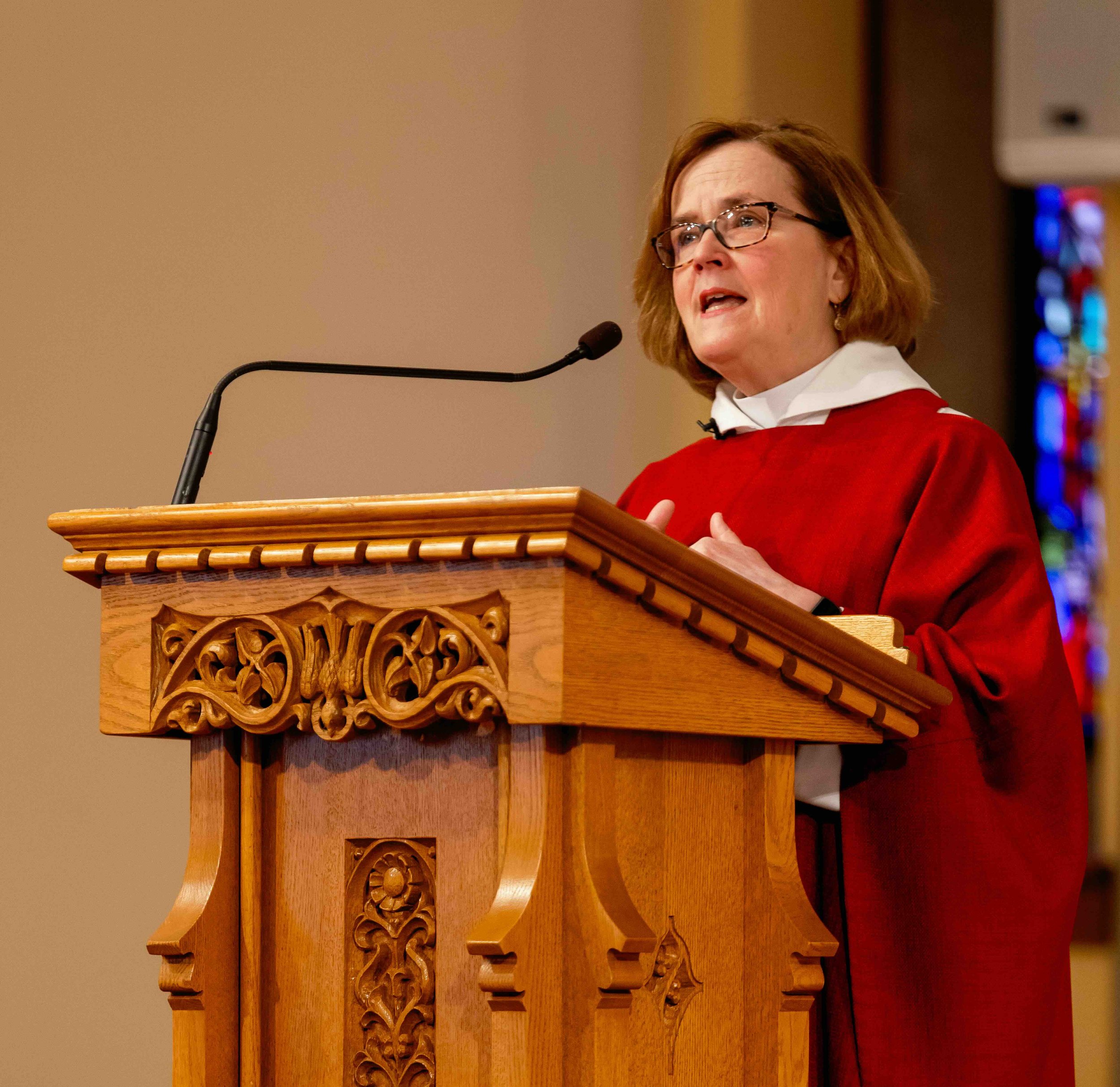
From our Worship
Sermon Blog
Today is Saint Patrick’s Day and we might expect to focus on that in church today. But when Patrick’s feast day falls on a Sunday, we don’t observe it because the readings for the Sundays in Lent supersede lesser feast days. Patrick’s life and witness does inform our understanding of today’s Gospel, however. Patrick lived in Britain during the fifth century. He was captured by Irish slave traders when he was 16 and was forced to work as a shepherd. After 5 years, he escaped and returned to Britain. He could have lived out the rest of his life in privilege, being from a wealthy family, but he felt God calling him back to the land of his captors, so he returned to Ireland to share the good news of Jesus with them. It’s amazing to think that Patrick had such love for the people who had once enslaved him.
Lenten Doldrums
This Sunday we are deep in the season of Lent, equally far from the celebration of Shrove Tuesday and the rejoicing of Easter. The midway points of our journey through the Lenten wilderness often bring the toughest trials as we struggle to maintain our enthusiasm for the discipline and repentance that the season calls for. We might find ourselves grumbling at the thought of several more weeks of sober liturgy, we might find ourselves getting lax in our prayers and our Lenten commitments. We might just be getting tired of the color purple.
Fools for Christ
As we approach the halfway point of Lent, there’s a particular spiritual discipline that I’d like to commend for your consideration: foolishness. And not just the variety you may or may not have partaken of on Mardi Gras.
But before you tell your friends that your priest told you to go out and ‘act a fool,’ as they say where I’m from, hear me out. Foolishness is baked into our theological tradition from the very start. We hear St. Paul gesture towards the notion of holy foolishness. In his letter to the Corinthians as he writes: “God decided, through the foolishness of our proclamation, to save those who believe… for God’s foolishness is wiser than human wisdom, God’s weakness is greater than human strength” (1 Cor. 1:21ff).
Lent 2
Lent is a time for preparing for Easter. And it is a time that many people who haven’t been in church in a while, decide to give church another try. Despite the decline in awareness in our culture overall of Christian practices, most people have heard of Ash Wednesday and most people know that Lent is a season for reevaluating your priorities in life. And it is a long-standing part of Christian tradition to take on specific spiritual practices during Lent OR to give something up. Giving up things and taking on new practices are both good things to do, as long as we do them as a way of increasing our awareness of our dependence upon God. The trouble comes when we use these things as a way of fooling ourselves into thinking how righteous we are, as in, when I resist ordering that vanilla latte that I gave up, that I love so much. OR when I think I am earning heavenly brownie points when I succeed in doing my 15 minutes of prayer time every day for a week straight. The issue with looking at things this way is that the focus is on me and my power to control my own destiny, rather than on God, and my reliance on him. Most of us grow up thinking that if we do all the right things, if we follow all the rules, we will be rewarded, and that if we just work hard enough, we can achieve anything we desire.
The Start of Lent
Today is the First Sunday in Lent and things look and feel pretty different around here. Lent is a penitential season and everything in the liturgy and in our sacred space reflects that. The liturgical color is purple and it symbolizes our need for self-reflection and the call to deepen our connection to God. It also reminds us of the color of the robe that was put on Jesus as he was mocked and scorned before he was condemned to death. So purple points us to where the season is headed, to Jesus’ death and to his resurrection. We also have firepots on the altar instead of silver candlesticks. The fire evokes a sense of the wilderness and God’s provision within it. The liturgy is also more somber during Lent.
Transfiguration and Real Presence
oday is the last Sunday of the season of Epiphany. Sandwiched between Advent and Lent, Epiphany is sometimes one of those seasons whose purpose can be unclear, so before we enter into Lent next week, I wanted us to take a look back on Epiphany to understand how it fits into our understanding of who Jesus is. First of all, the seasons of Advent, Epiphany, and Lent all go together in that order. They each walk us through three distinct periods in Jesus’s life. Advent of course is about preparing for Jesus’s birth and arrival in the world. Lent is about preparing for Jesus’s death and resurrection. And Epiphany is about everything in Jesus’s life in between. His public ministry, his teaching, his casting out of demons – lest we forget that – and most importantly, the small and large epiphanies his followers discover along the way about who exactly Jesus is, and how he shows up for them.
